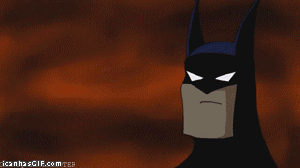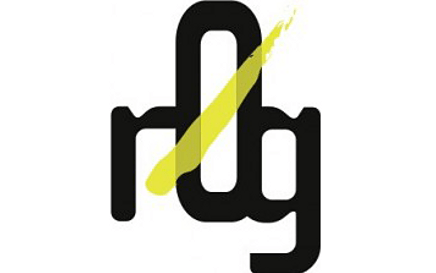RS Strategy is proud to announce our new partnership with the r0g_agency for Open Culture and Critical Transformation. We will be focusing on peacebuilding through open knowledge. Intrigued? Read on, then.
Continue readingFree software
[Announcement] OKCon Open & Citizen Science hackday: submissions
StandardI’ve already announced the OKCon ‘Open & Citizen Science satellite event’. As you may remember, we launched idea submissions several days ago. The detailed descriptions are below. You can vote for your favourite one and join us geeking out next Thursday, Sept 19. Don’t hesitate to get back to us either via Twitter (@MaliciaRogue, @stefankasberger) or via mail.
Continue reading
[Announcement] Open and Citizen Science in the heart of Europe
StandardStefan Kasberger from OKFn Austria and myself are organizing this one-day workshop as an OKCon satellite event. Join us!
Thursday 19 September, 10:00 – 17:00 @ Centre Universitaire d’Informatique Université de Genève, Auditorium, Ground Floor
Coordinators: Stefan Kasberger (Open Knowledge Foundation Austria) and Rayna Stamboliyska (Open Knowledge Foundation France), in collaboration with Daniel Lombraña González (Citizen Cyberscience Center / Citizen Cyberlab) François Grey (Citizen Cyberscience Center / University of Geneva), Margaret Gold/ Brian Fuchs (Citizen Cyberlab / The Mobile Collective)
Hacking science makes us happy. If it makes you happy, too, then, this year’s Open Knowledge Conference is the place to be!
Indeed, OKCon 2013 is where an amazing bouquet of insights from Open and Citizen science will converge. But if you thought there would be only food for the brain, you were wrong. A satellite event will take place on 19 September aiming at giving space for everyone to actually get great things done.
With our friends Daniel Lombraña González (Citizen Cyberscience Center / Citizen Cyberlab) François Grey (Citizen Cyberscience Center / University of Geneva), Margaret Gold/ Brian Fuchs (Citizen Cyberlab / The Mobile Collective), we have come up with a way allowing everyone to take part to this exciting day.
I have an idea!
We know you do. Hence, we have a dedicated form ready for you to submit a short description of what you are keen to work on. You can also indicate what additional competences you need in order to get your project done.
Idea submission will be running from today until 10 September. Every week, we will be updating everyone (through the Open Science mailing list) telling you about the new ideas submitted. In addition, a community call will be scheduled to discuss and narrow down these ideas so that they actually become feasible within one-day long hands-on sprint.
Working together
The idea of the satellite event is to geek out together. On 11 September, we will be publishing a poll with all ideas so that you can be able to vote for the project you want to work on on Day D. Voting will run until 18 September.
Do not forget to bring your favourite geeking gear (laptop, some flavour of mobile device or a fancy notebook in the perfect 1.0 fashion). We will have WiFi, cookies and fun!
—
The workshop space can accommodate up to 45 people. To sign-up, express your interest in the topic and get in touch with the coordinators please write to openandcitizenscience@okcon.org.
Living on Mars
Standard[This op-ed was first published on Al-Jazeera English.]
“Touchdown confirmed. We are safe on Mars.”
It has been nearly nine months now that the Curiosity Rover touched down on Mars. Do not be fooled by its cockamamie drawing penchant: the Rover has identified traces of calcium (often associated with water), and a stream bed. Around Christmas 2012, the NASA team winnowed down rich in clay mudstone containing small amounts of carbon, oxygen, hydrogen, nitrogen, sulphur and phosphorus – the building blocks of life. The dizzying amount of data Curiosity has been sending is by all accounts changing our perceptions and the possibilities we envision.
The Curiosity Rover’s startling wander on Mars has energised burgeoning – and often private – space tourism endeavours. US millionaire Dennis Tito for instance thinks going to Mars is so simple that it just might work. His Inspiration Mars programme launched back in February 2013 aims at sending a couple of humans on a journey on January 5, 2018, as Mars and the Earth would align on this day which enables a no-fuss trajectory. They will return 501 days later having flown by, but not landed on, Mars. Albeit still scant details about the five-year development plan, NASA hailed “the adventurous spirit of […] citizen explorers”.
Bold minds have come up with Mars One, a non-profit/for-profit hybrid plan to send people settle a colony on Mars. Living on Mars thus does not seem to be a nut job any more. Mars Onewill train people – no specific skills required – for eight years prior to sending them in such a mission. Going to Mars seems within reach, and we are planning to send people to live there. The question is thus not when but how: how do you live on Mars?
The NASA does many things well, and the reason why is because it buries every problem in experts. Recently, the NASA used a crowd-sourced approach to better prepare the Mars Exploration Program. The NASA Space Apps Challenges make no exception: during a two-day (April 20-21) event held simultaneously in multiple cities across the world, experts from all backgrounds gathered to address a total of 50 challenges. These ranged from software to hardware and visualisation challenges, including robotics and citizen science platforms. Paris – where I live – also participated, and I was invited to lead the “Citizen Science” section.
Closed-source software recommended to Syrian activists as 100% secure…
StandardIt is about Wickr, an app only available for iOS thus far. I remember this app made me smile when it was announced back in June 2012: it sends messages and photos that will be erased. The funny thing is that the user chooses for how long the messages/photos will last.
Nico Sell, co-founder of Wickr and one of the organisers of the DefCon, says Wickr will bring “NSA top-secret level encryption to the masses.” It seems absolutely awesome.
As operating on entirely proprietary and locked OS was not enough, Wickr also uses proprietary cryptography algorithms and its source code is closed. I’m confused about the “geek utopia” Sell depicts as follows:
Wickr has a patent pending on technology which Sell said could give people ways to safeguard anything they send or put online, even digital bytes in Internet telephone calls or posts to leading social network Facebook.
Loads of discussions (Mashable, for the non-crypto specialists and Liberationtech for the geekier) have been taking place around how much one could trust this tool. As quite a few security concerns have been addressed (see the Liberationtech messages above), I was particularly alarmed by the following in the Mashable article:
So could Wickr be used by an activist in Syria who is worried about enemy spies and Assad’s regime? Sell has no doubts — she answers that question with an unflickering “yes.”
You mean, people at risk of dying for communicating through technology could use a tool that only a small crowd knows the secrets of?

Gender equality and diversity do matter in FLOSS
StandardOn September 30, 2010, the Gender Equality and Diversity sessions took place as a satellite event of the Open World Forum 2010. Please find below a short summary of the workshop held in the afternoon dedicated to a Diversity Statement to be realized in the near future. Here are the slides introducing this workshop (pdf). The program mentions two different workshops (one dedicated to communities and the other to companies), but indeed we merged them.
DISCLAIMER: Given that I was also participating, it is very possible that I forgot to mention details here.
Bookmark: “We come in peace” – the Chaos Communication Congress announced
StandardWe come in peace, said the conquerers of the New World.
We come in peace, says the government, when it comes to colonise, regulate, and militarise the new digital world.
We come in peace, say the nation-state sized companies that have set out to monetise the net and chain the users to their shiny new devices.
We come in peace, we say as hackers, geeks and nerds, when we set out towards the real world and try to change it, because it has intruded into our natural habitat, the cyberspace. Let us explore each other’s truly peaceful intentions at this year’s Chaos Communication Congress 27C3 to be held from Monday December 27 to Thursday December 30, 2010 in Berlin, Germany.
27C3 calls for participation! The following areas are of particular interest this year:
Gender equality and diversity summit at the Open World Forum (Paris)
Standard The Open World Forum is an annual event held in Paris in the fall and bringing together actors from the Free/Libre and Open Source Software (FLOSS) world. This year, a special satellite session will be dedicated to women’s participation in communities and business activities in relationship with FLOSS. Panel discussions and workshops will be organized and many questions will be addressed. To assess women’s participation, a questionnaire has been prepared: I invite you to fill it in order to provide more depth in the vision of the subject.
The Open World Forum is an annual event held in Paris in the fall and bringing together actors from the Free/Libre and Open Source Software (FLOSS) world. This year, a special satellite session will be dedicated to women’s participation in communities and business activities in relationship with FLOSS. Panel discussions and workshops will be organized and many questions will be addressed. To assess women’s participation, a questionnaire has been prepared: I invite you to fill it in order to provide more depth in the vision of the subject.
Bug 626593 – Gnome ate my boyfriend! Help!
StandardA bug… or a feature? Awesome!
Call for participation: GMOD Tools for Evolutionary Biology Hackathon
StandardBookmark: Women’s Caucus internship opportunity
StandardThe Women’s Caucus at the FSF (Free Software Foundation) is seeking an intern to assist with its work to increase the number of women involved in free software. Please check the offer online.
Le Caucus est une initiative de la FSF (Fondation pour le Logiciel Libre) visant à augmenter la participation féminine dans les communautés libristes. Vous pouvez lire la traduction des recommandations en français (faite par votre humble serviteure qui est intéressée par toute suggestion d’amélioration). Ils proposent donc un poste de stage pour une personne intéressée par la thématique. L’offre (en anglais) est sur le site de la FSF.


